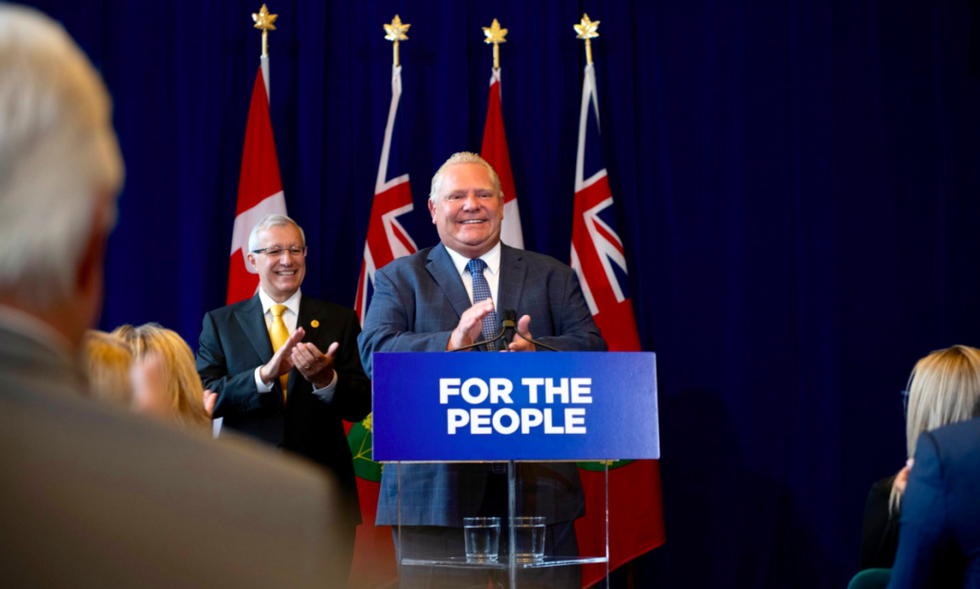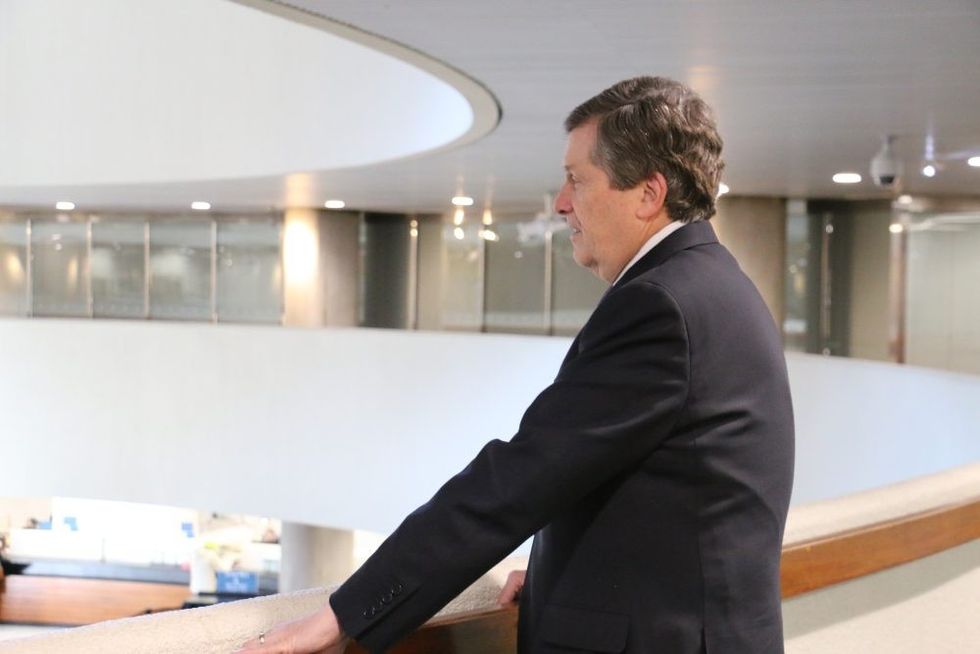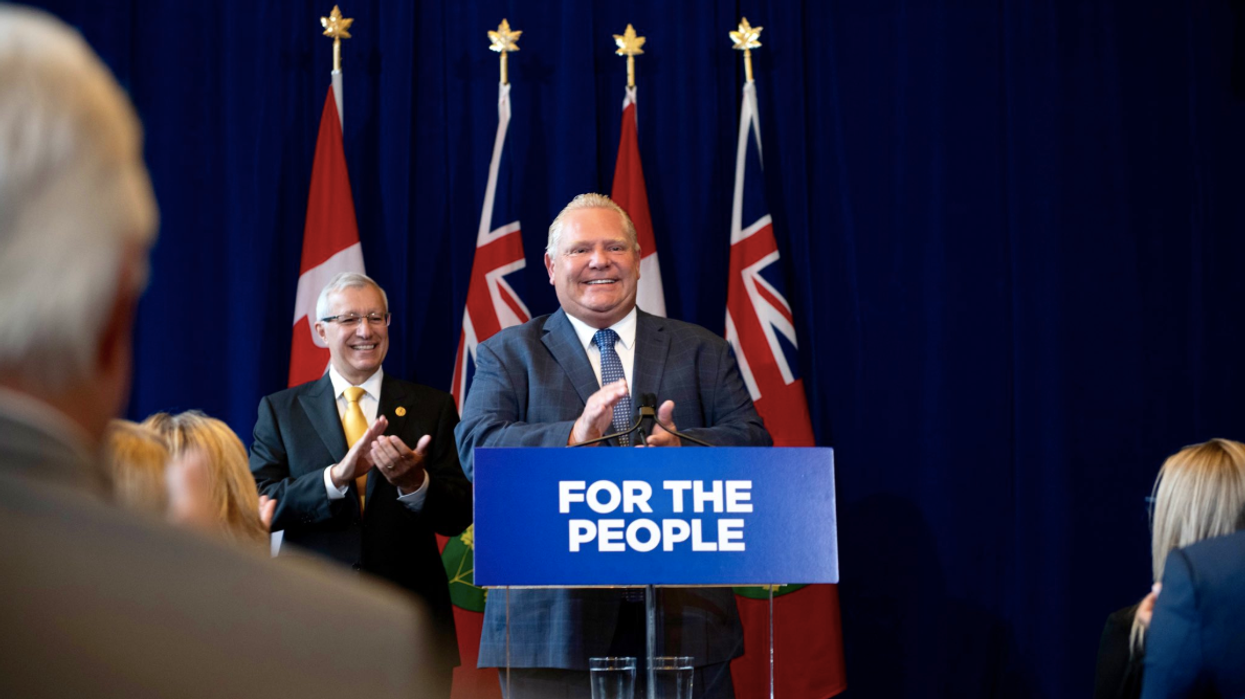
Thanks to Ontario Premier Doug Ford, the whole country is paying attention to the municipal election now unfolding in Toronto.
Not that Canadians care particularly who wins or loses, but when Ford chopped city council from 47 to 25 members — without consultation and after campaigning had started — alarm bells sounded from coast to coast. City-dwelling Canadians were rightly concerned that the same thing could happen to them.
READ: Doug Ford Promised Ontario This Housing ‘Plan’ Pre-Election: What Will Become Of It?
The problem, of course, is the Canadian Constitution.
Though updated and patriated in 1982, in important respects the document is not simply inadequate to the needs of modern Canada, it also hinders the country's ability to thrive in a world more urban than at any time in human history.
Specifically, the Constitution washes its hands of cities, leaving them not only powerless but dependent on the provinces.
As the document spells out: "In each Province, the Legislature may exclusively make Laws in relation to... Municipal Institutions in the Province."
A report prepared by the Toronto city solicitor in 2000, makes it clear that: "The Canadian Constitution gives the provinces exclusive control over cities and other municipalities. As a creature of a province, a city has no inherent powers — only the powers given by the province..."
READ: Doug Ford To Slash Toronto Council Seats, John Tory Responds “This Is Not Right”
It goes on to say that, "the powers a city possesses depend almost entirely on the powers the province wishes to grant. Similarly, a province can, at will, take away or change any municipal power previously granted."
Doug Ford has forced us to confront the reality of these words.
Given that 80 per cent of Canadians now live in cities, suburbs, towns and villages, civic powerlessness is a fact of life for most of us. And even before the court upheld the province's right to intervene so recklessly into the Toronto municipal election, Ford had threatened to use the notwithstanding clause that allows provinces to override the constitution.
The premier was not to be denied what many observers viewed as a settling of scores with the city.

Toronto Mayor John Tory's limp-wristed response didn't help. And although he voted in favour of a court challenge, it felt more an empty gesture than a genuine call to arms.
All the talk about fairness, about whether 47 councillors would be more democratic than 25, or the rightness of changing the rules of the game after it has started is beside the point.
In Canada, the provinces can treat cities pretty much as they like; the Constitution guarantees them that right. But today that draws only shrugs. Because no one takes the possibility of constitutional change seriously, the cities are dependent upon the kindness of strangers.
READ: Mayor John Tory Plans To Make Toronto More Affordable [EXCLUSIVE]
When then-Premier Dalton McGuinty and then-Toronto Mayor David Miller redrew the City of Toronto Act in 2006, it was greeted as the dawn of a new day for Hogtown. Not only did it give Toronto power to levy certain taxes, but it also allowed the city to change speed limits without going to Queen's Park for permission.
Miller used the legislation to impose a land transfer tax and a vehicle registration fee. The former was too lucrative to touch, but Miller's successor, Rob Ford, cancelled the latter within days of being elected. Despite growing financial pressures, his successor, John Tory, rejects the idea of reviving the vehicle registration fee.
And when Tory screwed his courage and went to ex-Premier Kathleen Wynne to propose tolling the Don Valley Parkway and the Gardiner Expressway, she wasted no time putting him in his place. Tolls, Wynne's caucus colleague's had let her know, were anathema in the 905.
Tory's brave scheme quickly went nowhere.
READ: How Doug Ford Exploits Ontario’s Growing Urban/Suburban Divide
But if Doug Ford follows through on his promises (Or should we say threats?), Toronto will be a different place.
Not only will council be half its size, but the subway could also be uploaded from the TTC to the province, and there might be a gambling casino at Ontario Place. As he has made clear, he will let us know once he has decided.
But not everyone worries.
Ford's decision to amputate council, which many Torontonians consider windy and dysfunctional, prompted an outburst of approval. On the other hand, provincializing the subway presents a truly scary prospect. As it is, no transit decision can be made without Queen's Park. After all, if it's paying the bill, it calls the shots.
The province's biggest argument for a take-over rests is the city's abysmal record on transit planning. The last decent scheme was David Miller's Transit City. It was killed by Rob Ford when he became mayor in 2010. But his plan went no further than, "Subways, subways, subways."
Tory's vague and confusing SmartTrack has gone nowhere.
READ: Jennifer Keesmaat’s Plan: Affordable Housing, Possible Property Tax Hike [EXCLUSIVE]
At the same time, the province's record is just as depressing.
Let's not forget that a year after Premier Bob Rae started work on the Eglinton subway in 1994, Premier Mike Harris stopped it — at a cost of $50 million.
The truth, however, is that to a large extent, Toronto's dysfunctionality is a result of provincial domination.
City government has not matured because it hasn't been allowed to. It has been too easy for council to avoid the tough decisions and slough them off to Queen's Park.
The Constitution has infantilized the city. That's why, as John Tory once put it, Toronto will remain a "little boy in short pants."





















